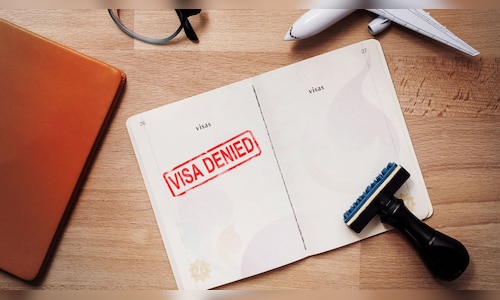Trump’s order will prevent citizens from 12 nations from entering the US starting Monday (June 9) at 12:01 am EDT (0401 GMT). The affected countries include Afghanistan, Myanmar, Chad, Congo Republic, Equatorial Guinea, Eritrea, Haiti, Iran, Libya, Somalia, Sudan, and Yemen.
Trump justified the ban as necessary to safeguard against “foreign terrorists,” echoing a similar policy he enacted during his first term from 2017 to 2021, which restricted travel from seven predominantly Muslim nations.
Iran denounces Washington’s discriminatory action to restrict entry of citizens from various countries into the US
Alireza Hashemi Raja, the director general for Iranian Affairs Abroad at the Foreign Ministry, vehemently criticized the US government’s recent action to prohibit… pic.twitter.com/kyX4EvnI9R
— Foreign Ministry, Islamic Republic of Iran ???????? (@IRIMFA_EN) June 7, 2025
Also read | Nearly all Indians traveling abroad purchase medical insurance; 83% protect against trip cancellations: Report
In the meantime, the US State Department has directed embassies and consulates not to cancel visas that were previously issued to individuals from the 12 countries included in Trump’s new travel ban, which primarily affects nations in Africa and the Middle East.
A cable sent to all US diplomatic missions specified that “no action should be taken for issued visas that have already been processed” and further asserted that “no visas granted before the effective date should be revoked in accordance with this proclamation.”
Also read |
Trump’s recent travel ban: Even governments are trying to comprehend its implications
However, applicants from the impacted countries whose visas have been approved but not yet issued will be denied, according to the cable, which was signed by Secretary of State Marco Rubio.
Moreover, unless an applicant qualifies for a narrow exemption from the ban, their application will be denied starting Monday (June 9).
Despite this, the cable, a copy of which was acquired by The Associated Press, indicates that current visa holders from the affected countries should face no issues entering the United States after the new restrictions come into force at midnight ET on June 9.
During Trump’s first term, a hastily prepared executive order barring entry to citizens of primarily Muslim nations caused turmoil at numerous airports and other entry points, leading to successful legal challenges and major policy revisions.
The newly signed proclamation on Wednesday seems crafted to withstand potential legal scrutiny by focusing on the visa application process.
Rubio’s cable states the only individuals who should be refused entry to the U.S. are those who are currently outside the United States without a valid visa as of the effective date.
Nonetheless, the actual entry into the United States at a port of entry is not managed by the State Department. It lies within the jurisdiction of the Department of Homeland Security and is at the discretion of individual Customs and Border Patrol agents to decide if a visa holder is permitted entry or turned away.
(With inputs from agencies)



